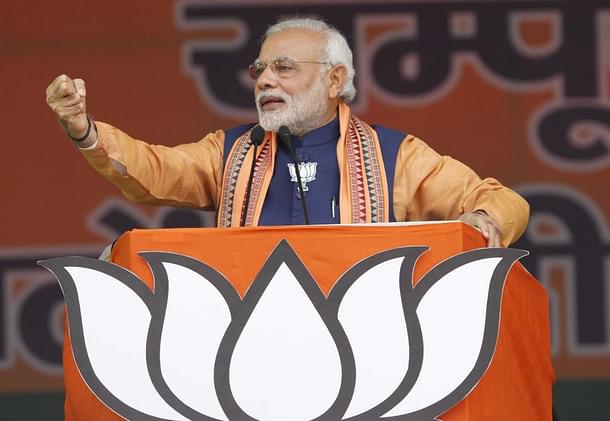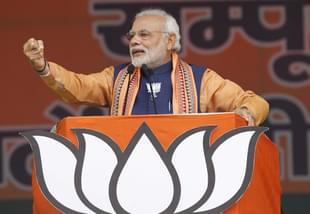Economy
Modi’s Rejection Of Farm Loan Waivers Should Be The Start Of A New Realism
R Jagannathan
Dec 31, 2018, 02:46 PM | Updated 02:45 PM IST
Save & read from anywhere!
Bookmark stories for easy access on any device or the Swarajya app.


Perhaps the best thing to happen after the Congress won three big Hindi-speaking states by promising farm loan waivers is Prime Minister Narendra Modi’s realisation that dangerous populism can only be fought head-on.
Speaking in Ghazipur the other day, he made it clear that no farm loan waivers will come from the Centre despite Rahul Gandhi’s promise to give Modi sleepless nights over it. Glossing over the fact that his own state governments have had to offer loan waivers, Modi declared such waivers as “lollipops” that do not ultimately benefit farmers all that much.
He pointed out that in 2009, the all-India farm debt was around Rs 6 lakh crore, but the United Progressive Alliance loan waiver covered only Rs 60,000 crore. And there were “35 lakh beneficiaries who were neither farmers nor had any debt. Who benefited from such karz maafi? I would urge you to beware of Congress lies and dishonesty.”
While Modi’s 'lollipop' reference does not rule out other schemes to help farmers, this is a good beginning and one can only hope that the government will now fight the loan waiver culture politically.
In the weeks ahead, as the waiver idea gathers more political steam, Modi should expand his argument to explain clearly why loan waivers impact farmers negatively.
He could, for example, point out that over Rs 2 lakh crore of farm loans were waived between 2014 and now; he should ask farmers whether their overall condition had improved since then despite some of them getting a waiver?
He could ask whether banks were more reluctant or more willing to give them loans?
He should tell them the opportunity cost of receiving loan waivers as against the same money being used to build cold chains and price stabilisation schemes, which would have helped farmers earn more.
He could also test the waters by asking groups of farmers whether they would accept cash in lieu of fertiliser and other subsidies.
On the other hand, he should promise a draft scheme that offers crop insurance and instant compensation for flood, drought or pest damage based on satellite imagery, where the money is paid directly into farmers’ accounts.
He should promise to give states almost the entire sum now spent on central food subsidies, which they can use to either launch their own limited minimum support prices (MSPs), or a price stabilisation fund for major crops. The Food Corporation of India will then buy limited quantities of rice, wheat and coarse cereals, but only for buffer stocking operations.
Modi should ask similar questions about public sector companies like Air India and BSNL that are a significant drain on taxpayer resources. If farmers and the urban poor understand that highly-paid airline and telecom staff are eating into state resources meant for the poor, there will be greater support for privatisation as opposed to mere disinvestment.
If Modi’s speech in Uttar Pradesh is the start of a new political attempt to bring harsh economic realities to the public’s notice, it must be welcomed. Most reformist ideas are won or lost not in the way they are conceived by the bureaucracy, but in the way politicians explain the rationale to the voters at large. Reform by stealth is no longer a viable proposition in India’s political economy.
Jagannathan is former Editorial Director, Swarajya. He tweets at @TheJaggi.





